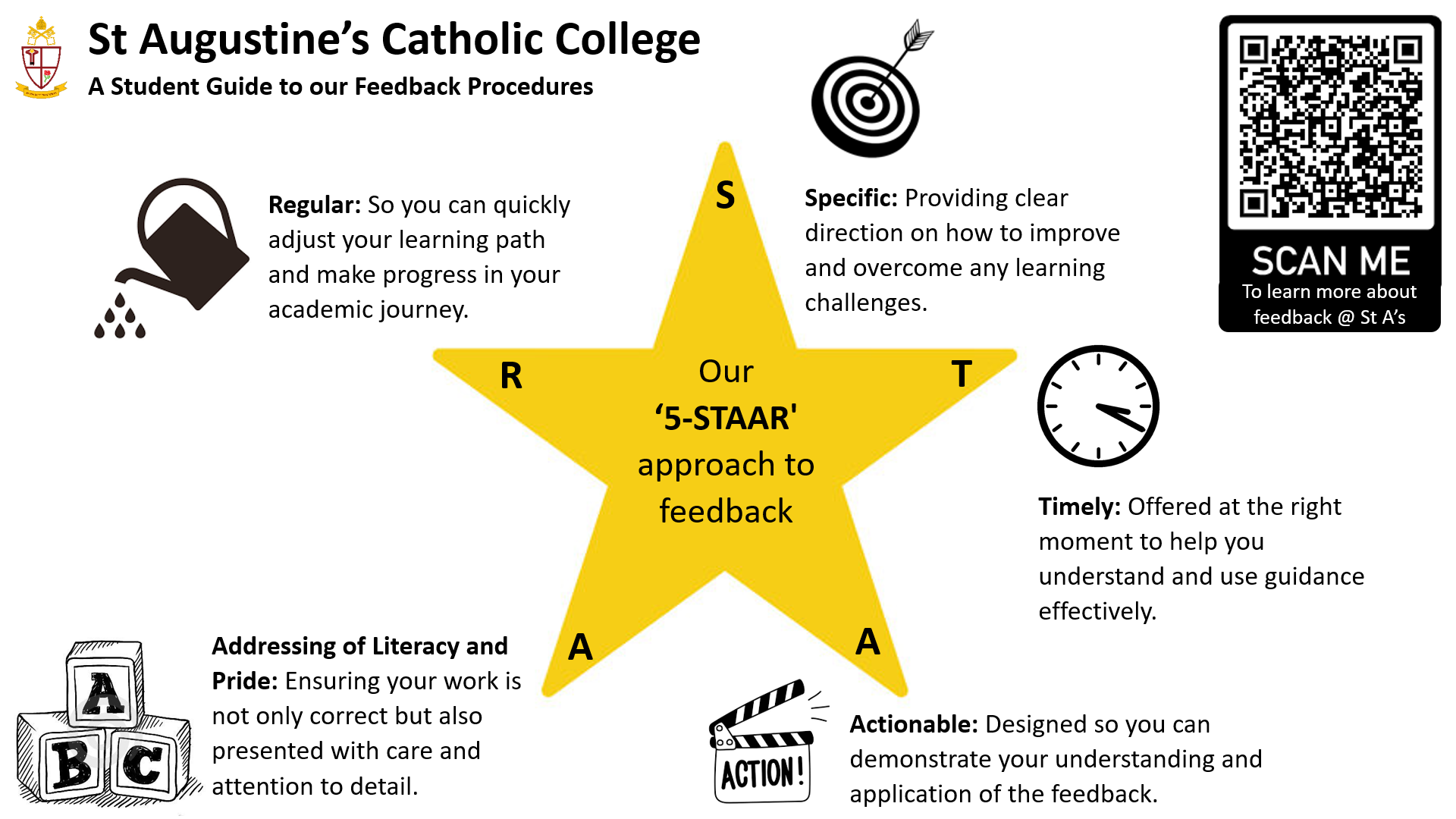Assessment and Feedback
Understanding Your Teachers' Approach to Feedback
At St Augustine’s Catholic College, feedback is more than just comments on your work; it's a cornerstone of our learning environment. Our teachers follow a principle-driven approach to ensure that you, as a student, receive the support and guidance you need to excel.
Here’s how you can understand and make the most of this process:
1. The Purpose of Feedback
Feedback is all about helping you close the gap in your learning. Whether it’s verbal, written, from peers, or self-reflection, the goal is the same: to guide you in making progress. It might focus on the task at hand, the broader subject matter, or strategies for self-regulation and improvement.
2. The '5-Star' Feedback Approach
Your teachers use a '5-Star' approach, ensuring that feedback is:
Regular: So you can quickly adjust your learning path and make progress in your academic journey.
Specific: Providing clear direction on how to improve and overcome any learning challenges.
Timely: Offered at the right moment to help you understand and use guidance effectively.
Actionable: Designed so you can demonstrate your understanding and application of the feedback.
Supportive of Literacy and Pride: Ensuring your work is not only correct but also presented with care and attention to detail.
3. Engaging with Feedback
Be Open and Reflective: See feedback as an opportunity for growth. Reflect on the comments and suggestions to understand how you can improve.
Act on Feedback: Use the guidance to make changes to your work or study habits. Whether it’s re-drafting an essay, correcting errors, or engaging in discussions, make sure you act on the advice given.
Use Feedback for Self-Regulation: Apply feedback to plan, monitor, and evaluate your work. This will help you become more independent in your learning.
4. Feedback in Action
During Lessons: Expect to receive verbal feedback and engage in discussions that will help clarify your understanding and improve your skills.
Through Your Work: Written feedback on your assignments will highlight areas for improvement and success. Always respond to this feedback in purple pen to show your engagement and progress.
Assessment Feedback: After assessments, pay close attention to the feedback given. It’s an invaluable tool for understanding how you can improve in future tasks.
5. Your Role in the Feedback Process
Ask Questions: If feedback isn’t clear, don’t hesitate to seek clarification from your teachers.
Engage in Peer Feedback: Learn from your peers by giving and receiving constructive feedback.
Reflect and Act: Always take time to reflect on feedback and act to close the learning gap.
Conclusion
Feedback is a powerful tool in your learning journey at St Augustine’s Catholic College. By understanding your teachers' approach and actively engaging with the feedback provided, you can enhance your learning experience and achieve your academic goals. Remember, feedback is a two-way street; it requires your active participation to be truly effective. Let’s make the most of this opportunity to learn, grow, and succeed together.


Close
Social Media